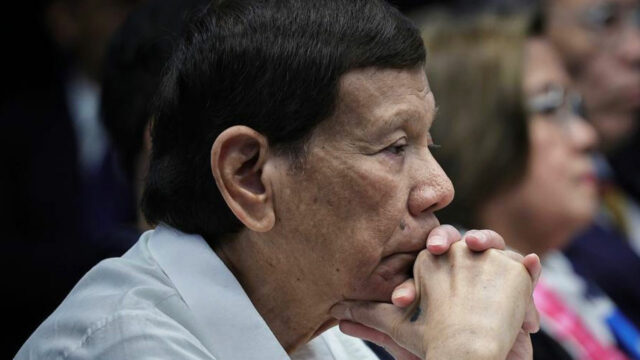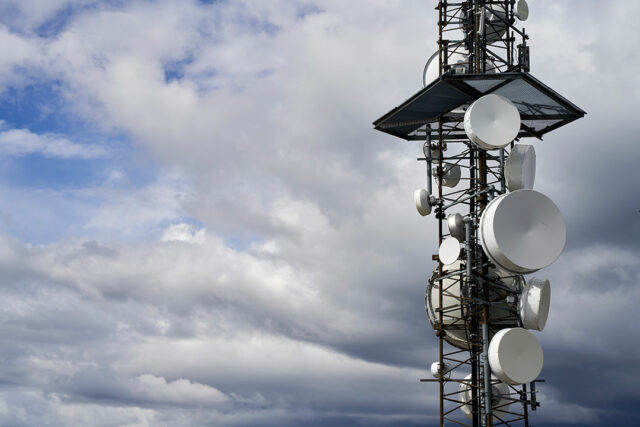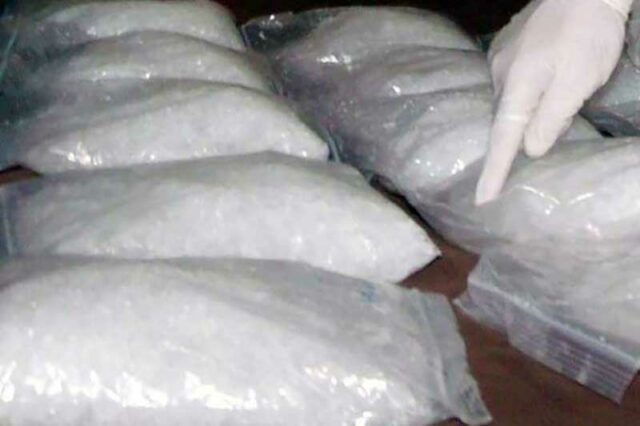PHL, US sign intelligence-sharing deal

By Kyle Aristophere T. Atienza, Reporter
THE PHILIPPINES and the United States signed a military intelligence-sharing deal on Monday, deepening defense ties between the two nations facing common security challenges in the region.
US Defense Secretary Lloyd Austin III signed the agreement with his Philippine counterpart, Gilberto Eduardo Gerardo C. Teodoro, Jr. at Manila’s military headquarters where they also broke ground for a coordination center that will facilitate collaboration between their armed forces.
Called the General Security of Military Information Agreement (GSOMIA), the pact allows both countries to share classified military information securely.
“Not only will this allow the Philippines access to higher capabilities and big-ticket items from the United States, it will also open opportunities to pursue similar agreements with like-minded nations,” said Philippines’ Defense ministry spokesperson Arsenio R. Andolong.
GSOMIA establishes that both parties will protect and handle classified military information to an equivalent degree of protection as required by the releasing government.
The legally binding bilateral agreement facilitates information sharing when and if the need arises.
It does not commit either country to share information but requires both parties to report any compromise, or possible compromise, of classified information provided by the other party.
The agreement defines the security equivalency within each country’s security programs for classification and safeguarding standards for the disclosed information.
Under the agreement, both parties will permit visits by security experts of the other party for the purpose of conducting reciprocal security surveys.
The agreement is considered a foundational agreement for other potential security agreements. It does not expire but can be amended or suspended, if required.
“We see that the gathering storm from China is besetting US and Filipino elites with the need to standardize security protocols on intelligence-sharing,” said Joshua Bernard B. Espeña, vice-president at the International Development and Security Cooperation (IDSC).
“The only question is whether they can get the picture right against Chinese intentions, capabilities, and whereabouts, and if so, that they would respond rightly,” he added.
Mr. Espeña said the deal was long-overdue amid increased cybersecurity threats that threaten intelligence ecosystems.
“One reason for the delay is the lack of alignment of the two countries’ strategic goals for the past years,” he noted. “You don’t gather and share information without a clear purpose lest a blunder of human and nonhuman resources.”
ONE-SIDED AGREEMENT
But Antonio L. Tinio, a former lawmaker who currently convenes a nationalist group named P1nas, said the deal was another “one-sided arrangement that compromises Philippine sovereignty.”
He said the deal would boost American dominance in terms of intelligence, surveillance, and reconnaissance (ISR) capabilities in the region — an imbalance that would make the Philippines “more dependent on US-supplied intelligence.”
“This arrangement effectively allows the US to drive the agenda in the West Philippine Sea, the Luzon strait closest to Taiwan, and other areas based on whatever information it selectively chooses to share with us,” he said.
“We will be seeing the situation through American eyes, guided by American interests.”
The former lawmaker urged Congress to scrutinize the agreement and “its implications for Philippine sovereignty.”
For Mr. Espeña, the analyst, the agreement is “ultimately,” about “developing interoperability between Filipino and American forces as the Philippine military stands to acquire more advanced, high-tech capabilities across the board.”
Also on Monday, Mr. Austin and his counterpart led a groundbreaking ceremony for a Combined Coordination Center inside the Philippine military’s headquarters near the capital Manila.
The US embassy in Manila said the center is designed to enhance interoperability between the Philippine and US armed forces through a multidomain training platform of the US Indo-Pacific Command.
The Pacific Multidomain Training and Experimentation Capability (PMTEC) pushes for coordinated and collaborative military training across the Pacific.
The center in Manila would allow both forces to operate as a combined command “for strategic planning, joint operations, intelligence sharing, and rapid response coordination,” the embassy said.
The center would ensure “both nations are ready to respond to regional challenges,” it added, citing conventional and unconventional security threats.
DEEPENING TIES
The center “symbolizes the deepening of ties, reflecting on the ironclad partnership that has evolved through consistent training like Exercise Balikatan and the Multilateral Maritime Combined Activities (MMCA), which emphasize cooperation and defense modernization,” the US Embassy said.
“This building demonstrates the US commitment to standing with the Philippines on our combined defense capabilities while promoting a collaborative, multilateral approach to regional security,” it added.
At the ceremony, Mr. Austin announced that the US government will provide an additional $1 million in humanitarian assistance to support the Philippines’ disaster response efforts after the Southeast Asian nation was hit by six major storms in just two months.
He said the new assistance will add to the $5.5 million in aid already provided to the Philippines through the US Agency for International Development (USAID) since September.
President Ferdinand R. Marcos, Jr. has pursued closer ties with the US amid an increasingly belligerent China, which claims the South China Sea almost in its entirety including waters within the Philippine exclusive economic zone.
Last year, he gave the US access to four more Philippine military bases, under the 2014 Enhanced Defense Cooperation Agreement.
Mr. Marcos told Mr. Austin during their meeting at the presidential palace that the EDCA sites have been an important “staging ground” for Philippine pre- and post-disaster responses.
“They served as staging areas actually for, when we know that the storm is coming, we preposition as much, as many assets, material as we can, as close as possible as not to damage the actual resources that we have,” he said.
“And the EDCA sites have become staging areas because right after the storm, many areas can only be reached by helicopter,” he added. “And many roads closed because of landslides and therefore, even the main capital of provinces can only be reached by aircraft.”
Mr. Austin said he had authorized US troops to “provide life-saving aid” to the Filipino people.
“Our work together especially the past 40 years has enabled our alliance to grow stronger and better.” — with Reuters





 Hansley A. Juliano, who teaches political science at the Ateneo de Manila University, said both top runners are “likely to be benefiting from the same networks of online content and information or disinformation” like most Filipinos are dealing with the past years.
Hansley A. Juliano, who teaches political science at the Ateneo de Manila University, said both top runners are “likely to be benefiting from the same networks of online content and information or disinformation” like most Filipinos are dealing with the past years.





